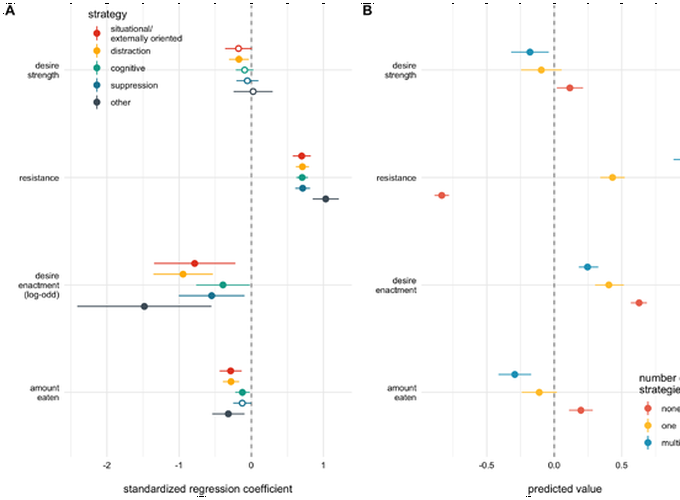Associations between use of self-regulatory strategies and daily eating patterns: An experience sampling study in college-aged women
Abstract
Previous theorizing suggests there are multiple means by which people regulate their emotions and impulses, but that these strategies vary in the degree to which they support goal attainment. Some have proposed that antecedent-focused strategies (e.g., situation selection, distraction) may be particularly effective, while response-focused strategies (e.g., suppression) are less effective. Despite these diverging predictions, researchers have yet to examine spontaneous use of these strategies and their respective and combined efficacy when applied to momentary food desires experienced in daily life. In the present study, we assessed college-aged women (N=103) eating patterns for one week via ecological momentary assessment. Results from pre-registered analyses indicate that using a variety of strategies, including antecedent-focused strategies such as situation selection and distraction, was associated with greater self-control success, as indexed by weaker desires, higher resistance, lower likelihood of enacting desires, and less food consumed. Additionally, participants were more successful during desire episodes in which they implemented additional strategies, as well as during episodes in which their desires conflicted with other goals they were actively pursuing. All associations were observed while controlling for momentary hunger levels, dieting status, age, and body mass index. These findings are consistent with a growing body of work assessing people’s spontaneous use of emotion regulation strategies in everyday contexts, suggesting potential meta-motivational tendencies marked by flexible and adaptive use of self-regulatory strategies.
